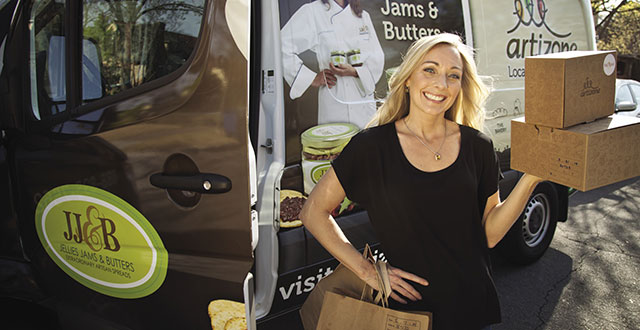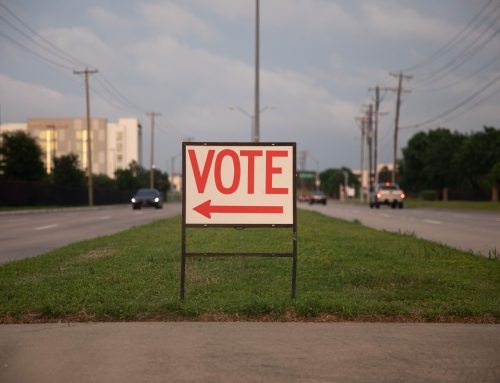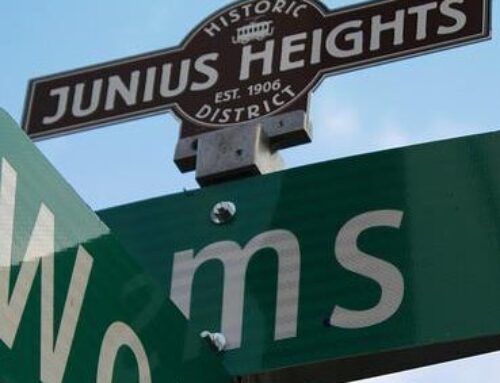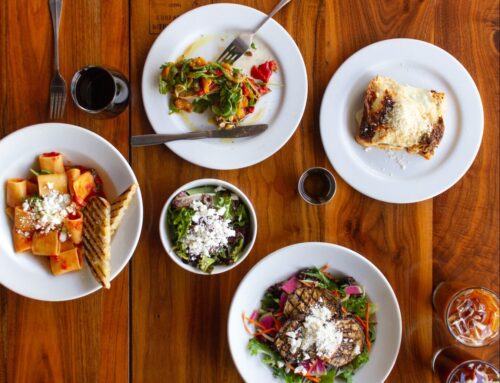Lakewood neighbor Amber Dietrich helped start Artizone, a sort of online farmers market, three years ago. Although Artizone has had to make some major changes over the years, Dietrich says the overall vision has stayed the same — to support local businesses.
I’ve heard Artizone described as an online farmers market. Is that accurate?
I don’t think that’s wrong, but I think there’s more depth to it than that. If you go to White Rock Local Market, you’re going to see a lot of the same vendors. We kind-of share vendors, and that’s why people see us as an online farmers market, but we also have other things that the farmers market doesn’t offer, like meat from a local butcher shop or fresh fish.
People can get on and order stuff any day, any time. We deliver seven days a week. We deliver in three or four time slots depending on the day. Tuesday nights and Thursday nights, we also have a pick-up location in downtown Dallas. That came from customers who told us, ‘I’d like to order from y’all, but you don’t deliver to Colleyville, but I work downtown.’
The most challenging thing for us is branding. People don’t know we’re out there, or they don’t get it — how [Artizone] actually affects 100 local companies, or how convenient it is in the sense that you could get a homemade chicken pot pie delivered to the house. There’s different ways to use it. Also, we change every year.
How so?
We’re three and a half years on the market, and we started with only six vendors, and now we’re at 85. There’s 70-something vendors that are live on the site, and 15-some new that we’re bringing on right now.
Obviously it has grown, but has the vision changed?
I don’t think the vision has changed. The short tale of Artizone is we want to support local business, local farmers, food shops, artisans, and we want to be an online channel for them, a way to expand their market, and that’s never going to change.
I would say what we found is that we thought we could run a profitable business doing just that, and we found that we can’t. The people who came to us with the first six vendors thought we were very specialty. Maybe if you were doing a Christmas or a birthday party, but it was like a one- or two-time-a year-purchase. After six months, I said, ‘OK, we need things that trigger every day — eggs, milk, produce, homemade breads.’
The second big change was when people started saying, ‘We want to support local, but it’s hard to do it when you don’t have the basics.’ That was the change that none of us saw coming: introducing things like Heinz ketchup, mustards, buns. In a way it can be confusing because you look at the site and think, ‘Well, they have all this local artisan stuff, but they also have all this grocery stuff?’ But we found bringing in all these other items that are pantry staples actually increased sales for the artisans because it gave people a way for it to actually be convenient. That was something we spent a lot of time talking about, wondering, ‘Should we do this? How do we balance this? How do we maintain an image?’ And that’s something we still battle with a little bit.
To have things delivered, does that make things more expensive than if I were to pick them up at the store?
It’s a 5 percent difference. If someone has cottage cheese for $10, it’s going to be $10.50 on the website. The delivery fee is $5.59, and if you order $120 or more, then the delivery is free. So if you pay $100 by driving all around the stores, then you’re going to pay $105.
What area does Artizone cover?
All of Dallas, not DFW. As far north as McKinney. We just opened up Rockwall. A little bit in Mesquite, a little bit in Garland, and a little into the west. We’re in Lewisville, but we’re not in Arlington. We did Fort Worth for a little bit, but it was too challenging, so we waited and scaled back. We started in Dallas first. This is the first market, and then 14 months later we opened in Chicago.






